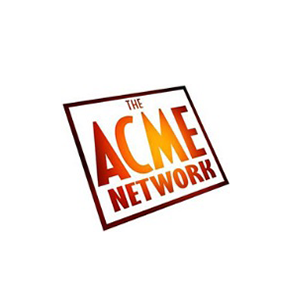2012 Don and Rosemary Vial Awards for Digital Inclusion
Outstanding Performance by an Organization Award Recipient
THE ACME NETWORK
ACME was founded in 1995 as a work force development collaboration (Work Force L.A.) bringing education and industry together to ensure that all Los Angeles students become prepared for 21st century work and learning. The organization pioneered academic and work force-based technology-integrated programs (now known as CTE or Career Technology Education) and broadband adoption in schools.
Through direct relationships fostered with corporate partners like Disney, Sony, DreamWorks, Apple, Intel, Haworth and Gateway, ACME has been able to impact a significant number of students in Los Angeles both through professional mentoring and computer contributions. Through just two of its programs, ACME Online, and ACME On-Air, ACME has served over 55,000 students. In Addition to this, an ACME predecessor, the Los Angeles New Media Academies, has served over 18,000 students. This effectively brings ACME’s reach to well over 73,000 students served.
ACME is a highly proactive organization, utilizing its many years of experience to anticipate and act upon future needs. ACME’s proactive actions span a wide range of activities, from building out their infrastructure for future student’s connectivity needs, to facilitating computer installation both in schools and at home, to educators-only emerging technology updates, and fostering a “Pay-It-Forward” mentoring model to encourage and sustain an ongoing, truly collaborative network of professionals. This mentoring model comes from the studio apprentice model, fostering an ongoing, direct, one-to-one relationship between industry professionals and students.
Through its methodology, approaches, and certainly its accomplishments, ACME truly embodies the ideals of Don and Rosemary Vial. With its “Pay-It-Forward” mentoring community in particular, ACME has been able to leverage the benefits of social interaction in order to enhance the availability of technology and workforce training to many who may not otherwise receive this high quality of instruction, if at all. ACME understands that bridging the Digital Divide is not only dependent on understanding the stand alone technology skills that today’s knowledge workers need, but that it also requires workers to be enabled with the knowledge, experience and tools to interact in a non-hierarchical, rapidly-shifting, networked digital environment. In this way, ACME and Don Vial both display an understanding that closing the Digital Divide parallels advocacy work done previously through traditional processes but that now may be accomplished to an even higher degree via Digital Inclusion and the closing of the Digital Divide.

